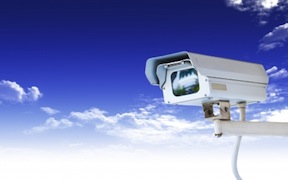Flawed oversight Board report endorses general warrants (EFF, 1 July 2014) – The Privacy and Civil Liberties Oversight Board (PCLOB) issued a legally flawed and factually incomplete report late Tuesday that endorses Section 702 surveillance. Hiding behind the “complexity” of the technology, it gives short shrift to the very serious privacy concerns that the surveillance has rightly raised for millions of Americans. The board also deferred considering whether the surveillance infringed the privacy of many millions more foreigners abroad. The board skips over the essential privacy problem with the 702 “upstream” program: that the government has access to or is acquiring nearly all communications that travel over the Internet. The board focuses only on the government’s methods for searching and filtering out unwanted information. This ignores the fact that the government is collecting and searching through the content of millions of emails, social networking posts, and other Internet communications, steps that occur before the PCLOB analysis starts. This content collection is the centerpiece of EFF’s Jewel v. NSA case, a lawsuit battling government spying filed back in 2008. The board’s constitutional analysis is also flawed. The Fourth Amendment requires a warrant for searching the content of communication. Under Section 702, the government searches through content without a warrant. Nevertheless, PCLOB’s analysis incorrectly assumes that no warrant is required. The report simply says that it “takes no position” on an exception to the warrant requirement when the government seeks foreign intelligence. The Supreme Court has never found this exception. PCLOB findings rely heavily on the existence of government procedures. But, as Chief Justice Roberts recently noted: “the Founders did not fight a revolution to gain the right to government agency protocols.” Justice Roberts’ thoughts are on point when it comes to NSA spying-mass collection is a general warrant that cannot be cured by government’s procedures. The PCLOB’s proposed reforms for Section 702 are an anemic set of recommendations that will do little to stop excessive surveillance. For example, rather than rein in government communications searches, the PCLOB simply asks the NSA to study the issue. The PCLOB report provides the public with much needed information about how the 702 program works. But the legal analysis is incorrect and the report fails to offer effective reforms.
Provided by MIRLN.
Image courtesy of FreeDigitalPhotos.net/Stuart Miles.





